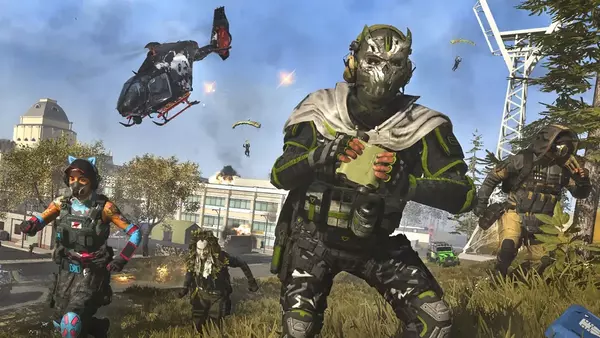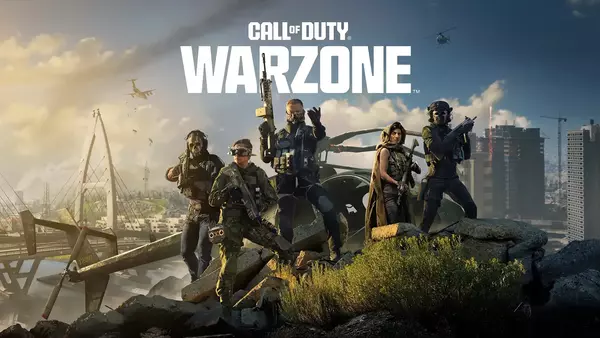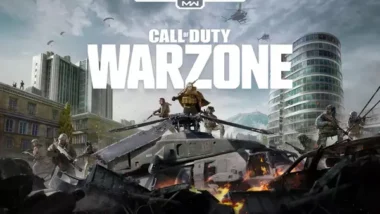Introduction
Call of Duty: Warzone, the popular battle royale game from Activision, has drawn millions of players into its fast-paced, tactical gameplay. However, one issue has consistently divided the player base: skill-based matchmaking (SBMM). SBMM is a system that matches players of similar skill levels together, creating a challenging environment regardless of experience level. While some argue SBMM ensures fair competition, others feel it detracts from the enjoyment of casual play. In this article, we’ll delve into the impact of SBMM on Warzone, its influence on player enjoyment, and potential solutions for balancing this contentious feature.

Understanding Skill-Based Matchmaking (SBMM)
SBMM in Warzone is designed to create balanced matches, ensuring players face others with similar skill levels. However, it fundamentally changes the experience compared to traditional random matchmaking.
How SBMM Works in Warzone
- Matchmaking Based on Player Stats
- SBMM uses metrics like kill-to-death ratios, win rates, and overall skill level to match players together, leading to a more evenly skilled lobby.
- Impact on Casual vs. Ranked Play
- Unlike traditional ranked modes, SBMM is implemented in casual games, meaning all players face a similar level of challenge in each match.
The Controversy Around SBMM in Warzone
Why Some Players Oppose SBMM
- Increased Stress and Reduced Enjoyment
- For many, SBMM makes matches feel intense and competitive rather than casual, causing some players to feel pressured and frustrated.
- Challenges for Casual Gamers
- Casual players who want a relaxed experience find it difficult to enjoy the game as SBMM creates matches where skill matters more than luck.
Impact of SBMM on Player Behavior
Adoption of “Sweaty” Playstyles
- Playing Conservatively to Gain Advantage
- Players in higher-skill lobbies adopt conservative or “sweaty” tactics, like camping and playing defensively, to secure wins, which changes the game’s pace.
- Burnout from Consistent Competition
- Constantly facing equally skilled opponents can lead to fatigue, causing players to burn out faster than they would in a more varied matchmaking system.

Influence on Game Strategy and Tactics
Rise in Meta Weapon Use
- Dependency on Meta Loadouts
- To stay competitive, players often rely on the strongest, most effective weapons, leading to a lack of variety in loadouts and limiting strategic diversity.
- Impact on Weapon Balancing
- The pressure to use meta weapons puts a strain on balance, as some players feel forced into a specific playstyle to succeed.
Effect on New and Returning Players
Difficulties for Newcomers
- Higher Barrier to Entry
- New players struggle to adapt due to facing opponents who may have better aim, movement, and game knowledge, leading to a frustrating introduction to the game.
- Lower Retention Rates for Casual Players
- Players who can’t keep up with the skill level required to compete may leave the game early, reducing the overall player base.
Impact on Warzone’s Streaming and Esports Scene
Challenges for Content Creators
- Difficulties in Creating Entertaining Content
- Streamers and content creators face challenges producing fun, engaging content as they are often matched with high-skill players, leading to fewer exciting moments.
- Increased Focus on Skill Over Entertainment
- For viewers, watching high-skill matches repeatedly can become monotonous, as streamers are forced to prioritize competitive play over creativity.
Activision’s Stance on SBMM
Why Activision Keeps SBMM in Place
- Ensuring New Player Retention
- Activision sees SBMM as a way to retain newer players by preventing them from facing overly skilled opponents, maintaining a stable player base.
- Balancing Business Interests and Player Feedback
- While player feedback against SBMM is vocal, Activision remains committed to it to attract a broad audience and ensure player engagement.
Community Reactions and Suggestions
The Push for an Optional SBMM Mode
- Demand for a Separate Ranked Mode
- Many players have called for a distinct ranked mode with SBMM, while casual matches would use traditional random matchmaking for a more varied experience.
- Increasing Transparency on Matchmaking Mechanics
- Players want Activision to clarify how SBMM works to understand its impact better and potentially feel more satisfied with their match outcomes.
Potential Solutions to Balance SBMM
Adjusting the Intensity of SBMM
- Scaling SBMM Intensity Based on Player Level
- Implementing a gradient system where SBMM is less intense for lower-level players and increases with experience could help retain both new and skilled players.
- Introducing “Skill Brackets”
- Instead of one strict SBMM model, Activision could introduce skill brackets that ensure a balance between skilled and casual players without making every match overly competitive.
Future of SBMM in Call of Duty: Warzone
Anticipating Activision’s Next Steps
- The Role of Player Feedback in Shaping Changes
- Given the strong opinions on SBMM, Activision may take further steps to refine it based on player input to improve the experience for everyone.
- Exploring Alternatives to Improve Player Satisfaction
- Introducing alternative systems or modes could give Activision a middle ground, balancing SBMM for both the competitive and casual communities.

Conclusion
Skill-based matchmaking in Call of Duty: Warzone remains a controversial feature, impacting player experience, game balance, and community satisfaction. While Activision has defended SBMM as a means of maintaining fair play, many players feel it detracts from the game’s enjoyment and casual appeal. By considering player feedback and exploring ways to refine SBMM, Activision could create a more inclusive environment that caters to both competitive and casual players. Addressing this issue could lead to a better Warzone experience, preserving the excitement that has made it one of the most popular battle royale games.


